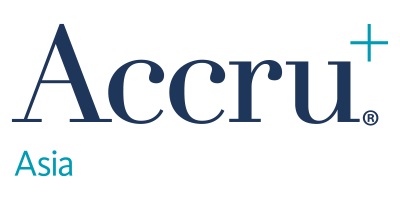
06 Jun Cross-border GST changes
GST changes for overseas business in Australia
Under the amended New Tax System (Goods and Services) Tax Act 1999 (in force since October 2016), overseas businesses in Australia may be eligible for relief from taxation on certain cross-border transactions.
Registration for GST
Your overseas business may no longer need to be registered for GST if it is only making GST-free supplies. Under the new rules, this will depend on whether your business is considered to be ‘carrying on an enterprise in Australia’ despite its non-resident status.
Non-residents considered not to be carrying on a business in Australia will generally only be subject to GST on supplies to Australian consumers only, not businesses. Goods purchased overseas from registered Australian businesses won’t usually be taxable.
The new law also means that your overseas business may no longer need to pay GST on the installation and assembly of goods within Australia if it didn’t import the goods and the recipient is an Australian-based business. Services that Australians provide to unregistered non-residents, such as the fulfillment of warranty obligations, are also GST-free.
The following two questions will also determine how your business is affected by the new law.
Are you carrying on an enterprise in Australia?
Non-resident businesses with GST turnover above $75,000 are now required to register for and pay GST where they are supplying goods or services through a business ‘carried on in Australia’, that is a business that has a fixed place(s) of business here for 183 days+ within 12 months.
If your overseas business has agents resident in Australia, you may need to seek advice to determine whether these agents are ‘dependent’ or ‘independent’. If you have one or more ‘dependent’ agents located in Australia, you are carrying on a business here and will need to pay GST on behalf of the agent. Agents include employees and officers, but not employees of subcontractors.
Who are your recipients?
The application of GST depends on your recipients, so it is important to determine whether you are making supplies to an Australian consumer or an Australian business. Suppliers should request an ABN and a statement of purpose from their recipients to determine their status.
An Australian-based business recipient of overseas services and intangible property (such as digital products) does not pay GST. Non-resident businesses supplying or leasing to another non-resident for the purpose of carrying on business outside Australia need not apply GST.
The GST registration status of your recipient is also relevant to the application of reverse-charges. The amended law allows for a voluntary agreement between non-resident supplier and registered recipient to reverse-charge GST, but only where the non-resident is not making supplies through their Australian business. GST will also be reverse-charged where it was not paid because the recipient misrepresents a private purpose by providing the supplier with business details.
A recipient who is either a GST-registered business acquiring a supply for a wholly private purpose, or an Australian consumer, will be compulsorily reverse-charged GST on services and intangible supplies. Where an acquisition is fully creditable, these provisions do not apply.
Simplification of taxable value of importations
As an alternative to calculating the actual costs of imports, your overseas business can elect for imports to be taxed at 10% of customs value and duty, subject to the relevant regulations. Those deemed to be suppliers applying GST under the new provisions may apply to be limited registration entities, which simplifies GST reporting requirements.
Business implications
Non-resident businesses should reassess the nature of the supply operations with Australia to determine how they are affected if they haven’t already done so. Accru’s Sydney office specialises in international tax arrangements. Please contact us if you need assistance.


